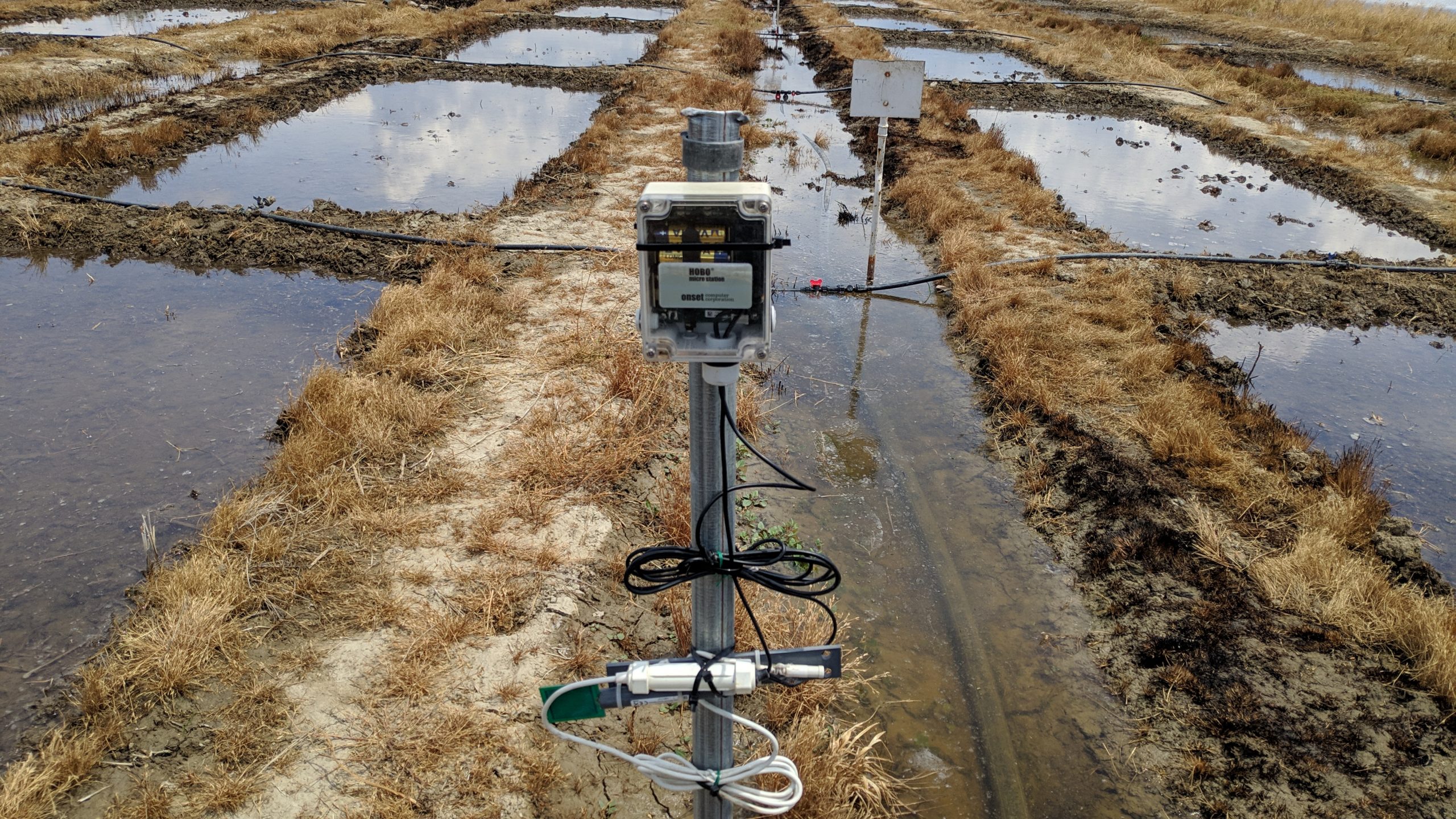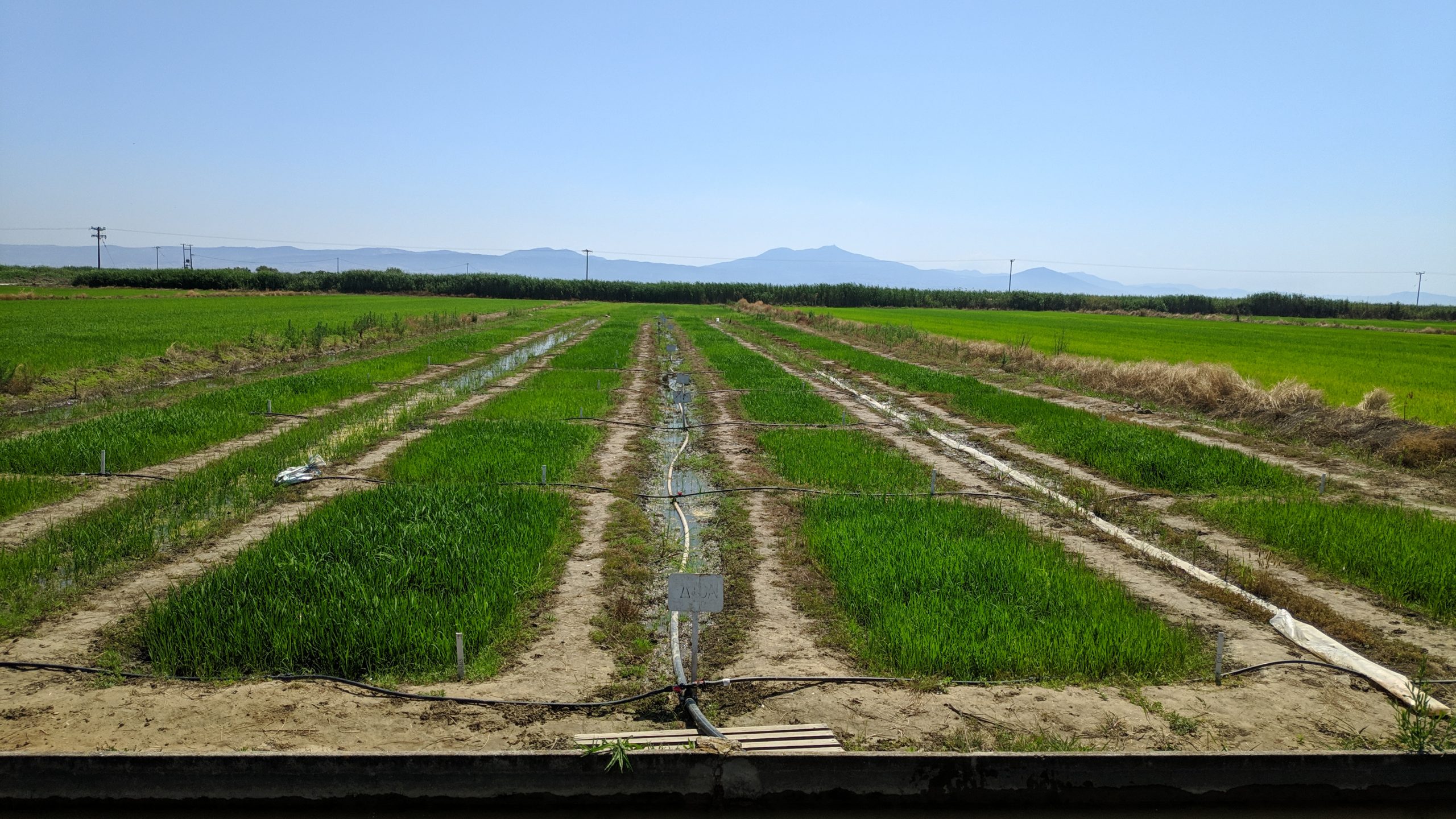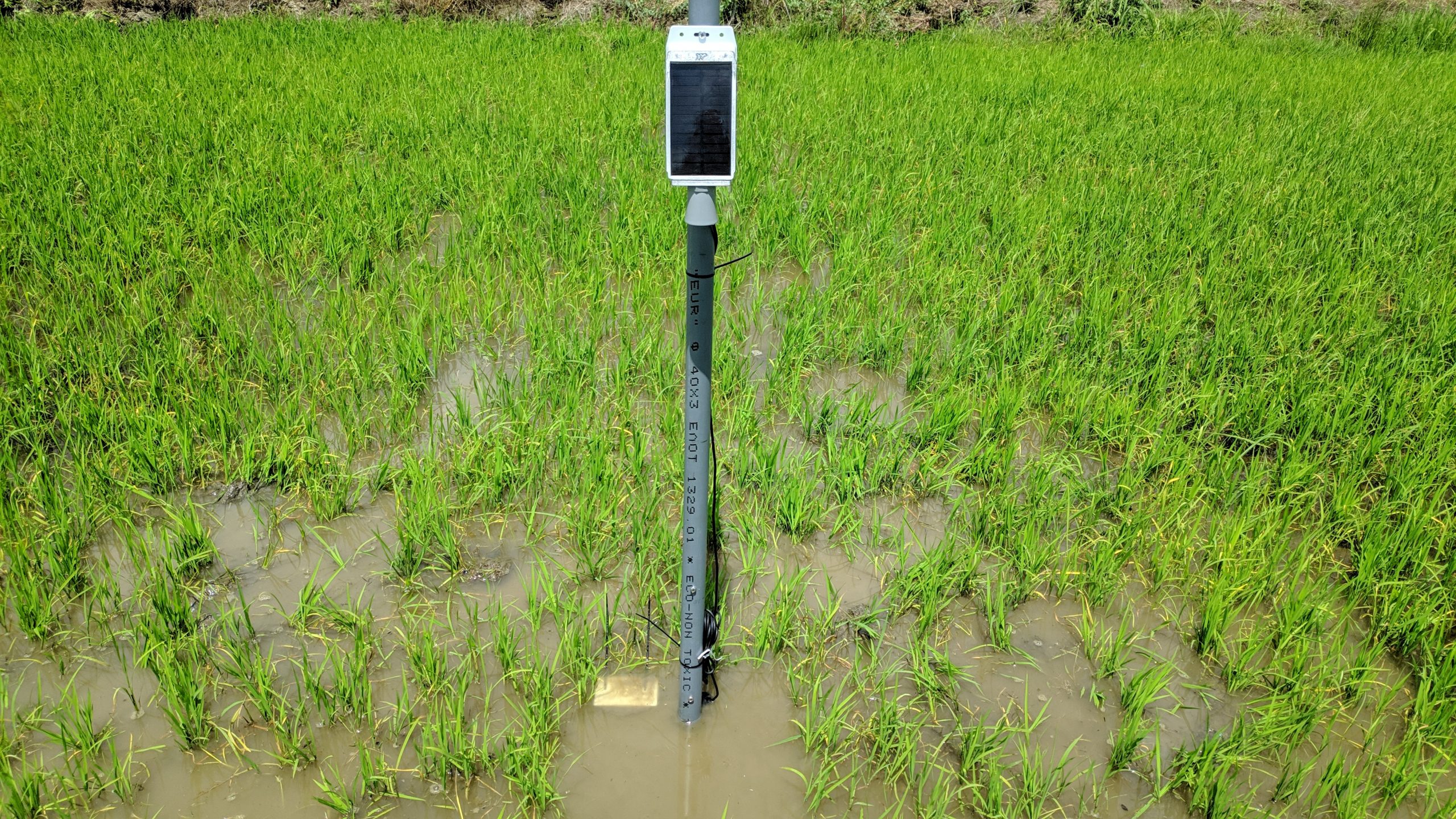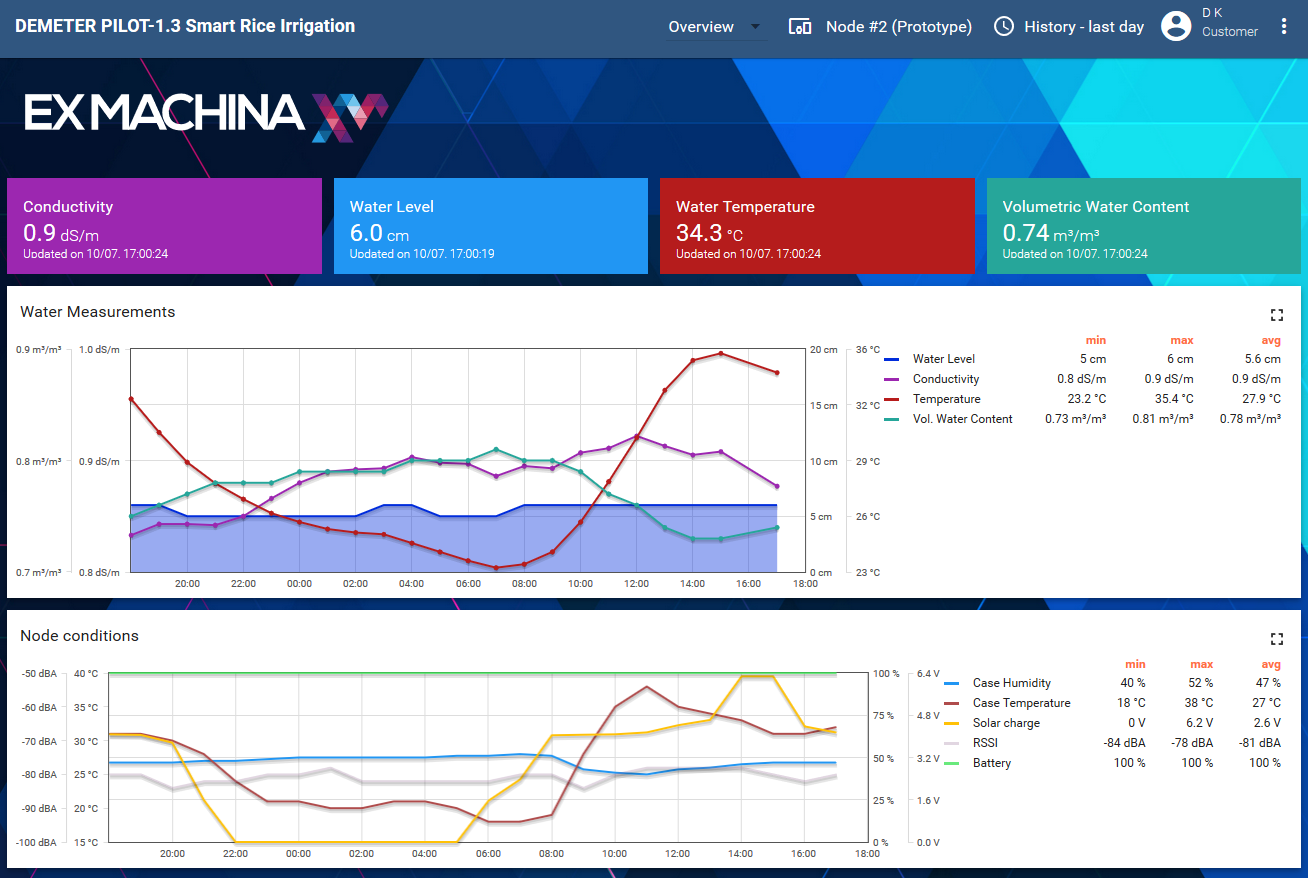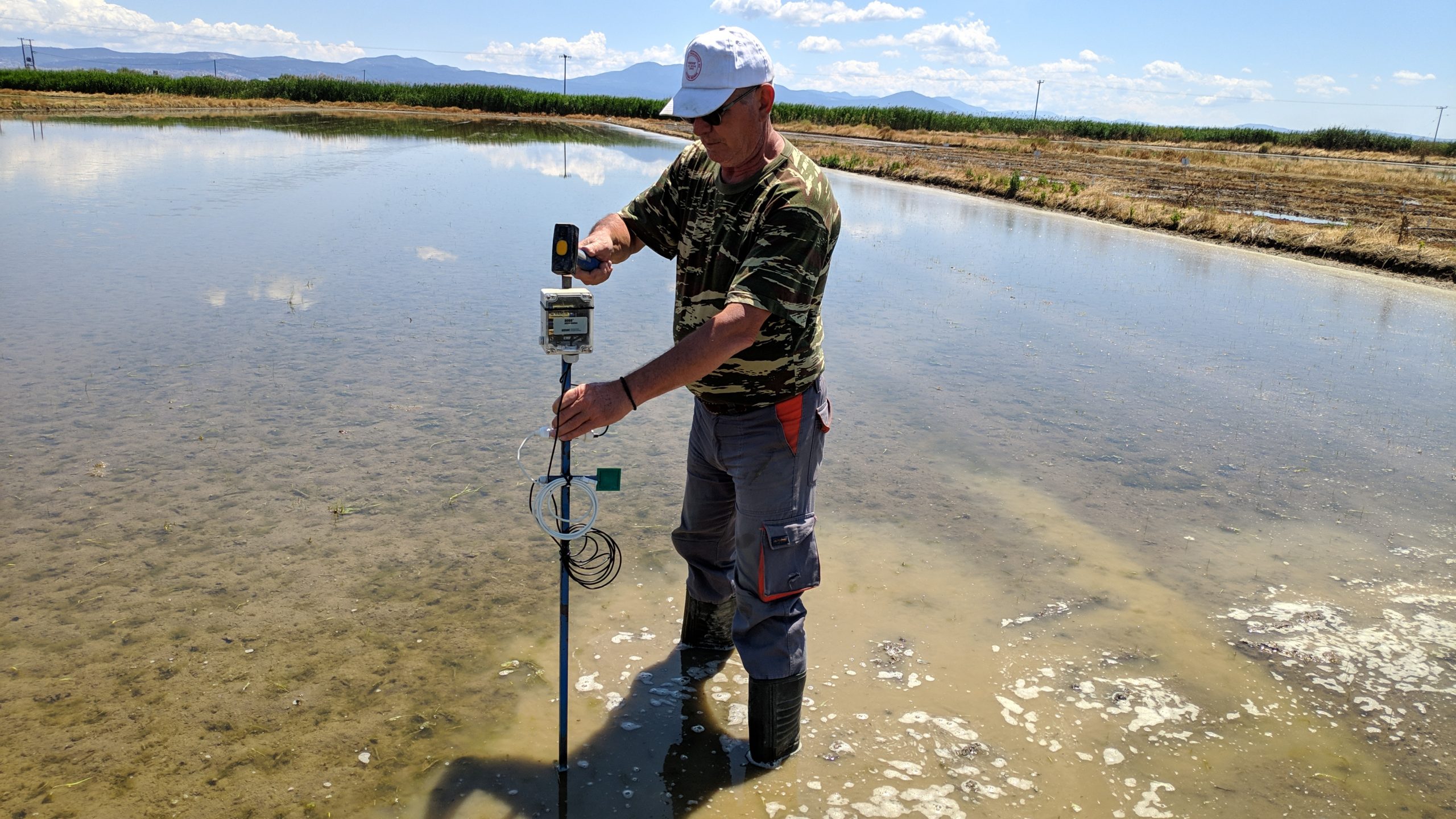
We chat to Dimitris Katsantonis from ELGO (Hellenic Agricultural Organization – “DIMITRA”) to learn more about the pilot project he is leading in Cluster 1 which focuses on water and energy management.
Can you tell us a bit about your organisation and your involvement in the DEMETER project?
ELGO (Hellenic Agricultural Organization – “DIMITRA”) is the national body responsible for the agricultural research and technology in Greece. The Institute of Plant Breeding and Genetic Resources, located in Thessaloniki, is the main foundation in Greece, which is specialized and targets plant science including cereals, industrial, vegetable, aromatic plants and trees. The rice unit has participated in several EU projects such as RESGEN 96, EURICE, EURIGEN, SMARTPADDY, RICEGUARD, ERMES and AGROCYCLE, since 2011 research has been focused towards Precision Agriculture. It has long term and close collaborations with rice cooperatives and groups of farmers, traders, industry, while it conducts frequent day conferences, bilateral meetings and farming schools in order to disseminate and transfer the knowledge and new initiatives to the primary and secondary production base. The Institute owns a 50ha experimental station, a fully equipped analytical laboratory specialized in methods for the evaluation of the quality of cereals.
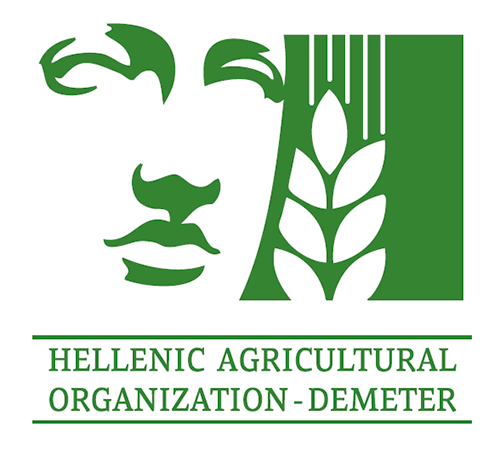
What pilot project are you involved in?
This pilot (1.3), under the cluster of ‘Arable Crops’, aims to improve the management and automation of rice irrigation, along with nitrogen zonal fertilisation. Maize is also an important crop for rice growers, as it is included in the majority of crop rotation system, at least once every three years. Therefore, the present pilot will improve the management of both water and fertilisation in maize crop.
What is the objective of the pilot project?
The pilot will provide a service for maximising water use efficiency in rice and maize, through the deployment of appropriate sensor systems and science-based decision making. Thus, both water quality and quantity will be optimised. Since irrigation is tightly linked to fertilisation, a nitrogen fertilisation advisory service will be setup, leading to optimisation of the spatial distribution of nitrogen application based on the real needs of the field, for reducing the cost and the environmental impact of these crops.
What approach are you taking?
- The real-time salinity and water height sensors (Smart Irrigation System, SIS) will automatically or remotely control electric water input valves for irrigation and water outputs valves for drainage. Alternatively, individual farmers can use the SIS system only as information provider.
- Moreover, the pilot will deploy a methodology for nitrogen fertilisation management using variable rate application (VRA) technologies, based on spatial information collected by the pilot paddy fields through UAVs (Unmanned Aerial Vehicles).
- With respect to maize, multi-spectral and thermal images will be collected at predefined points within the cultivation period using UAVs already owned by ELGO and ICCS. Water- or nitrogen-stressed fields will be identified through an automated image processing workflow, as well as through image analysis using innovative techniques, such as machine learning on embedded multicore GPU device for fast decision support.
- Data analytics, decision support mechanisms for optimal resource management/allocation.
- Image processing using machine learning algorithms for plant data linked to the plant’s irrigation needs/health.
- Support for resource consumption reduction/minimization.
- Usage of machine learning techniques (e.g., suitable neural networks) in order to forecast optimal irrigation schemes based on data collected on the field for sufficiently large time period.
- Usage of decision support tools (e.g., to support the irrigation-related decisions of producers).


Smart fertilization modeling (56 plots)
What other stakeholders are involved in the pilot project?
- Stakeholder #1 (internal): ELGO
- Stakeholder #2 (internal): ICCS (Institute of Communication and Computer Systems)
- Stakeholder #3: Local Irrigation Authorities (TOEV), The Local Irrigation Authorities are the official authorities for controlling the distribution (spatial and temporal) of irrigation water to the farmers.
- Stakeholder #4: Regional Irrigation Authority (GOEV), The Regional Irrigation Authority oversees all Local Irrigation Authorities in Central Macedonia.
- Stakeholder #5: Agronutritional Cooperation Region of Central Macedonia, Entity within the Regional Government of Central Macedonia, with the objective of promoting the region’s agricultural products and ensure sustainable production
- Stakeholder #6: Geosense, private company providing UAV mapping services
- Stakeholder #7: ScientAct SA, Private company trading scientific instrumentation
- Stakeholder #8: Ergoplanning Ltd, Major agri-consultancy business in the region of Central Macedonia, with a large clientele in rice and maize cultivation
- Stakeholder #9: Agricultural Cooperative of Halastra “DIMITRIAKA”, Cooperative of farmers in the Region of Central Macedonia
- Stakeholder #10: Agricultural Cooperative of Agios Athanasios, Cooperative of farmers in the Region of Central Macedonia.
- Stakeholder #11: Group of Farmers KALOCHORIOU A P.C., Group of Farmers; users of the pilot’s services. The Group of Farmers KALOCHORIOU A P.C. is a primary collaborator with ELGO for many years.
- Stakeholder #12: Agricultural Business of Chalastra SA, Group of Farmers; users of the pilot’s services. Interested in using the services that will be developed in the pilot
- Stakeholder #13: Argicultural Business of Kalochoriou SA, Group of Farmers; users of the pilot’s services. Interested in using the services that will be developed in the pilot.
- Stakeholder #14: Georgios Kravvas, farmers; user of the pilot’s services. Major rice producer in the Region of Central Macedonia.
- Stakeholder #15: Nikolaos Housnis, farmers; user of the pilot’s services. Major rice producer in the Region of Central Macedonia. Interested in using the services that will be developed in the pilot.
- Stakeholder #16: Ex Machina, IoT and hardware development company
What are the expected outcomes of the pilot project?
a) Optimization of the irrigation efficiency in rice and maize cropping systems.
b) Optimized and low-input fertilization support in rice and maize cropping systems.
c) Application of remote sensing methodologies in precision farming for rice and maize crops, which cover the majority of the Greek rice region workflow.


